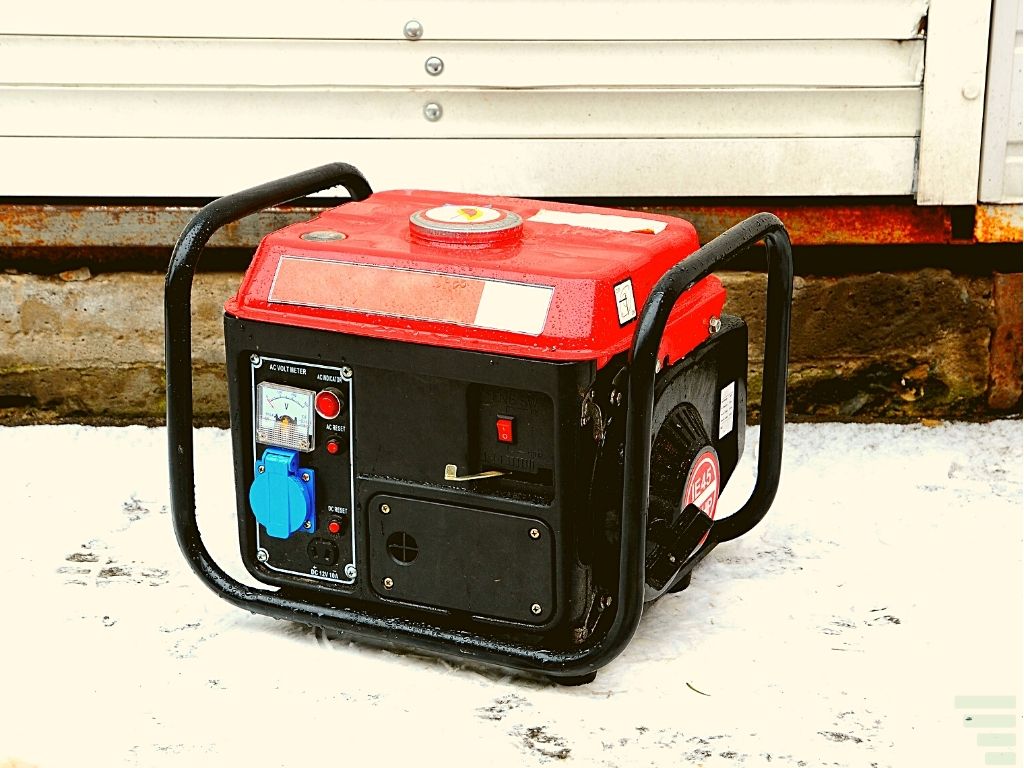This article may contain affiliate links. For details, visit our Affiliate Disclosure page.

Have you ever wondered how to safely run a generator in a garage? You may not have had to think about this, but it’s always good to be aware of your surroundings.
There is more to generator safety than just being aware of potential problems. Being prepared can prevent many potential disasters. The following article will teach you some of the dangers of running a generator in a garage. After reading this, you will know how to protect yourself and your home from harm.
The Risk Comes From the Generator
Electric Fires
Many generators contain combustible gas or oil. In an electric fire, the combustion product leads to a large explosion. This can result in burns and fatalities if they are improperly used. In an electrical fire, the danger is due to power surges. It can lead to an explosion and fire damage in your home, your belongings, and your animals.
Electrocution
If your generator includes any type of electrical connection, there is a real danger of an electrical shock. The most common causes of this condition include short circuiting, power surges, and misuse of the equipment. If the power goes out, a generator that uses electricity can overload the circuits causing shocks. You can protect yourself by not working with electricity when you are not in the presence of a licensed electrician.
Power Surges
A generator that runs without an appropriate outlet is a health hazard. When there is no outlet, there is no power. This means that there is no safe way for electricity to flow. Power surges are a real possibility if the generator is left unplugged. You can avoid these problems by learning how to safely run a generator in a garage.
Carbon Monoxide
Like most small engines, a generator generates large amounts of carbon monoxide. Never, in any case, operate a generator in a garage, utility building or warehouse (even with the door open), in the basement or in any way that carbon monoxide can accumulate convergence to the point of death.
Guide On How To Safely Run A Generator In A Garage
Read the Operator’s Handbook Carefully
How-To Books Should Include Specific Instructions If you are a first time user then finding a how-to book on how to safely run a generator in a garage should be easy. However, if you have never operated a generator before then it may be difficult to know what specific instructions to follow. If this is the case then there are many online resources that offer information on how to operate generators safely. These types of manuals can be found by searching for specific products on the internet.
In addition to finding how-to books there are also many publications that provide very specific information on how to safely operate and maintain all types of power equipment. These can be purchased at most any home improvement center or office supply store.
Simple Techniques for Staying Safe
A good how-to book on how to safely run a generator in a garage should contain a few simple safety tips. A good home safety manual will include how to plug in and unplug the system as well as offering simple techniques for staying safe when working with electricity. Always make sure that the circuit breaker is turned off before working on or around the generator. It is also important to read the operator’s handbook carefully before using the equipment. Make sure there are no signs of wear and tear and that the item has not been damaged in any way.
Storage Structure
For large items such as vehicles that must be stored for long periods of time it may be necessary to build a storage facility outside of the home. The how-to book should give instructions for setting up an external structure as well as providing guidelines for safely running a generator in a garage. It may be necessary to use concrete blocks or other materials to keep the generator and its components contained while running.
Safety Warning
Even the smallest of generators can potentially produce large amounts of energy if they are not used properly. It is important that they are kept away from anything that can generate and produce negative energy. When the generator is not running it should be stored so it does not produce power surges. Make sure the generator is out of the way when it is not in use. It should be put in storage containers or buried underground when not in use.
Minimize CO
To minimize CO, direct the generator exhaust away from home. If it were possible to orient the generator against the wind direction, it would be the house’s wind blowing. Fix the generator with a durable chain and padlock.
Finally, many generators equipped with CO detectors will shut down before CO accumulates to a lethal level. Even though such an equipped generator is a bit more expensive than one without the technology, it’s still a good idea.
Conclusions
As with any electrical appliance, if in doubt, stop and ask an expert. Do not take any risk with your generator. Regularly service and visually inspect for damage before each use.
